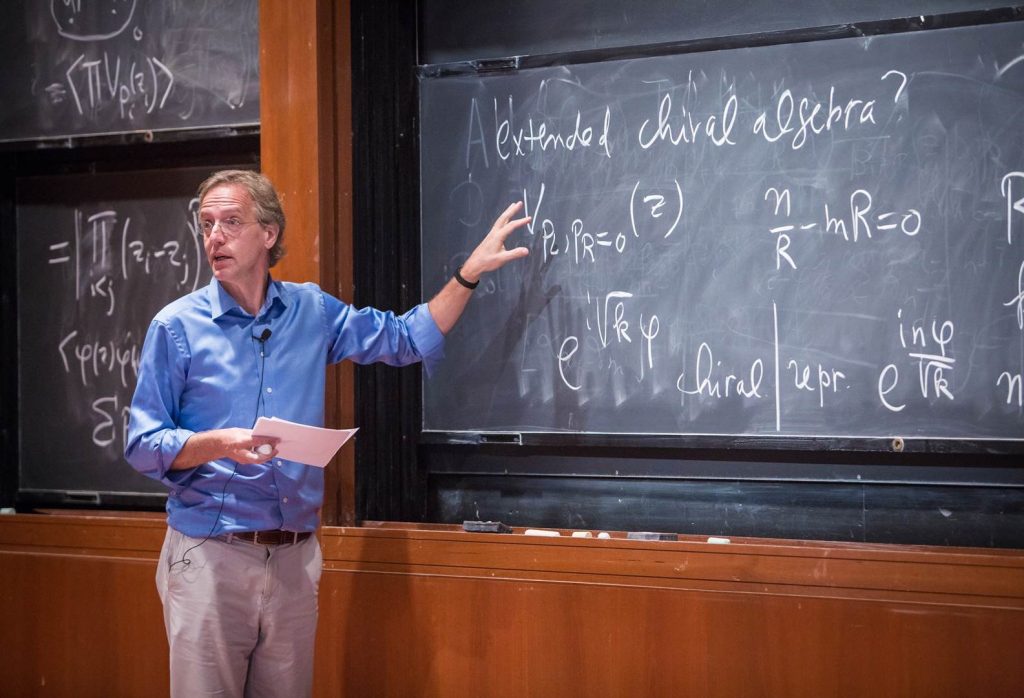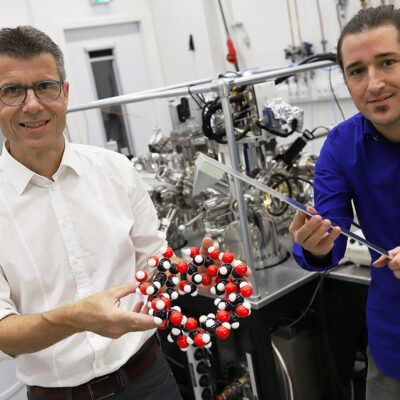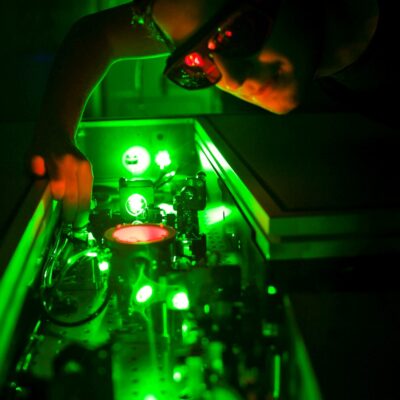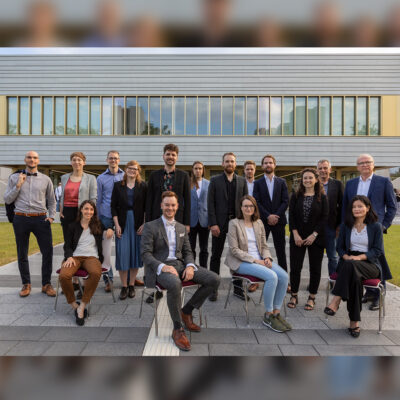Mathematical physicist Professor Dr Robbert Dijkgraaf is the director of the Institute for Advanced Study in Princeton, New Jersey, and is renowned for his research on string theory. He is giving the opening speech of Bielefeld University’s anniversary conference. BI.research interviewed him first about the meaning of great theories.
Professor Dijkgraaf, have the great theories become obsolete? This is one of the central questions being raised at Bielefeld University’s anniversary conference.
In general, it’s dangerous to search for grand theories in any field of science. There is no guarantee that there are simple and universal answers underlying fields of great complexity such as human behaviour, natural ecosystems, or the Earth’s climate. However, a search for the fundamental laws of nature has been extremely successful and encouraging in the past. Both at the smallest and largest scales of the universe, current physics is described in terms of elegant mathematical equations with just a handful of particles and forces. So, in this area we have moved from great complexity to great simplicity, although at the cost of introducing very advanced theoretical concepts such as quantum theory and curved space-time. It would be a cruel joke, if at an even deeper level nature turned out to be intractable again.
But in some sense the grandest of grand theories is still doing very well. That’s Newton’s formulation of modern science. He discovered there is a system of laws describing nature. That reality is, in principle, deterministic, and knowledgeable.
Researchers formulate theories and test them with experiments—this is how science has been perceived for a long time. How is this changing due to ever better information technologies?
I think we now see a complementary approach. Correlations, connections, and theories can “emerge” out of great data sets. Such patterns only become apparent when the scale is really massive, which is facilitated by modern storage and computing capabilities. The latest artificial intelligence methods, such as deep learning and neural nets, enable one to surface these relations. For example, it was a surprise to many that machine translation from one language to another follows deep patterns that were not at all obvious. So, we might be entering an era where theory emerges from data, instead of from human thought. Of course, our own brains have been very good at detecting patterns in massive data sets. One could even argue that’s how modern science was born.

String theory is often described as revolutionary and a candidate for universal theory. What hopes do you attach to string theory?
There is a famous saying by one of the great pioneers of string theory, my colleague Edward Witten at the Institute for Advanced Study in Princeton, that if string theory is not describing our universe, we should ask ourselves who is living in the universe described by string theory. It is quite remarkable how this theory is able to bring all the big ideas from modern physics together. But, we have to be honest. We still lack a deep understanding of the fundamental concepts underlying string theory. So, we are not at all close to the state of, say, Einstein’s theory of general relativity, which was built on very clear conceptual foundations. I’m very aware of how much we don’t understand. Although I think we are most likely moving in the right direction, there might still be a long way to go.
Professor Dr Robbert Dijkgraaf from the Institute for Advanced Study and the University of Amsterdam is one of today’s leading string theory researchers. His research focuses on the interface between mathematics and particle physics. Dijkgraaf has developed precise formulas that help explain the behaviour of particles in certain black holes. He is the keynote speaker on 14 November at the anniversary conference ‘The Theoretical University in the Data Age’. His talk ‘The Usefulness of Useless Knowledge and the Importance of Basic Research’ will start at 6.15 p.m in the Audimax.
This article is a pre-publication from BI.research, the research magazine of Bielefeld University. The new issue of the magazine will be published in November 2019.




